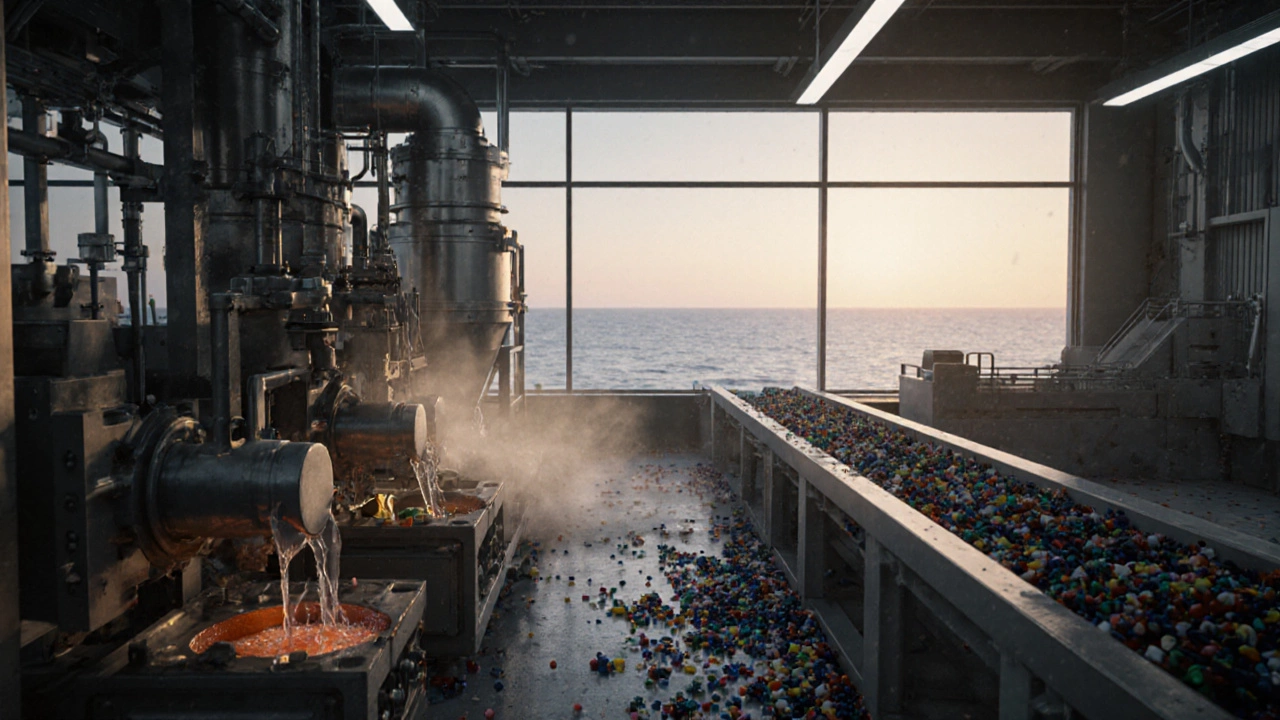Single-Use Plastics: What They Are and Why They Matter
Ever wonder why a coffee cup or a grocery bag feels so disposable? That's single-use plastic – a product designed to be used once and tossed. It’s cheap, lightweight, and handy, but the downside is a mountain of waste that clogs rivers, fills landfills, and hurts wildlife. In the next few minutes, we’ll break down the real impact and show what you can do, plus how Urban Polymers India is turning the tide.
The Real Cost of Throw‑Away Plastic
When a plastic bottle is discarded, it can take up to 500 years to break down. During that time it releases micro‑plastics that end up in our food chain. Cities in India generate millions of tons of plastic waste each year, and a big chunk is single‑use items that never get recycled. That waste not only pollutes but also eats up valuable space in landfills, driving up cleanup costs for municipalities.
Beyond the environment, there’s an economic angle. Companies spend billions on waste management, and consumers often pay hidden fees for bottled water or take‑away meals. Cutting down on single‑use plastics can free up money for other priorities, whether it’s better infrastructure or community programs.
Practical Alternatives You Can Adopt Today
Switching to reusable options is easier than you think. Carry a metal or bamboo water bottle, grab a cloth grocery bag, and say no to plastic straws. For businesses, moving to paperboard or biodegradable polymer packaging can keep customers happy while slashing waste. Many startups are already offering compostable cutlery made from cornstarch – they look like plastic but break down in a few weeks.
If you run a factory, consider using recycled resin in your products. Urban Polymers India specializes in high‑quality recycled polymers that meet the same standards as virgin material. Their solutions let you keep production costs low and showcase a green brand image at the same time.
Governments are also stepping in. New regulations in several Indian states limit the distribution of single‑use plastic bags and impose penalties for improper disposal. Staying ahead of these rules by adopting sustainable packaging not only avoids fines but also builds trust with eco‑conscious customers.
Ultimately, the biggest change starts with awareness. When you understand how a single‑use item impacts the planet, you’re more likely to make a different choice. Share the facts with friends, ask vendors for alternatives, and support companies that invest in circular plastic solutions.
Urban Polymers India is doing exactly that – they design polymer products that can be recycled over and over, reducing the need for fresh plastic. Their research team works on additives that improve material strength without compromising recyclability, meaning you get durable goods that don’t add to the waste pile.
So next time you reach for a disposable cup, pause and ask yourself: can I use a reusable one? Can my business switch to a greener polymer? Small actions add up, and with the right partners, like Urban Polymers, the shift from single‑use to sustainable becomes a realistic, affordable goal.
Who Dumps Plastic in the Ocean? Uncovering the Role of Plastic Manufacturing Companies
Explore how plastic manufacturing companies contribute to ocean waste, the leak points in production, regulations, and actionable steps for both firms and consumers to reduce marine plastic pollution.
Plastic Bottles: The World's Most Thrown Away Plastic Item
Plastic bottles top the list as the most discarded plastic item worldwide, creating a massive challenge for the environment and the plastic industry. This article breaks down why plastic bottles hold this infamous spot, how manufacturing companies contribute to the issue, and what happens after you toss one in the bin. You'll get straightforward info on the actual numbers, eye-opening facts from real life, and easy tips to help cut down on single-use plastics. It's a fresh look at something we all touch every day but rarely think about.

